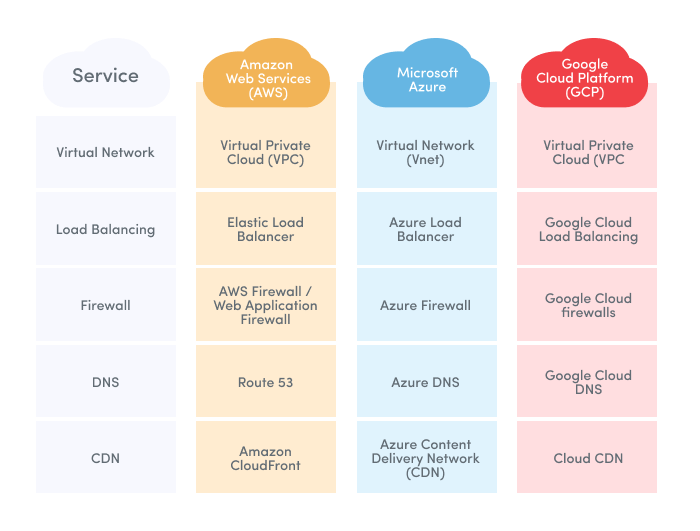Comparing AWS, Azure, and Google Cloud: Which is Best?
In today’s fast-paced, technology-driven world, cloud computing has become an essential part of businesses and organizations of all sizes. The three major players in the cloud computing market are Amazon Web Services (AWS), Microsoft Azure, and Google Cloud. Each platform offers a wide range of services and features, making it difficult for businesses to choose the best option for their needs. In this article, we will compare AWS, Azure, and Google Cloud to help you decide which is the best choice for your business.
Service Offerings
AWS, Azure, and Google Cloud all offer a wide range of services, including computing power, storage, databases, machine learning, and more. AWS is known for its extensive selection of services, with over 200 fully featured services. Azure, on the other hand, is popular among businesses that are already using Microsoft products, as it seamlessly integrates with tools like Office 365 and Windows Server. Google Cloud is known for its strong machine learning capabilities, making it a popular choice for businesses looking to implement AI and data analytics.
Scalability
Scalability is a key factor to consider when choosing a cloud provider. AWS is known for its ability to easily scale up or down based on demand, making it suitable for businesses with fluctuating workloads. Azure also offers great scalability options, with the ability to scale across virtual machines, databases, and storage. Google Cloud provides scalable and flexible infrastructure, with features like auto-scaling to handle varying workloads with ease.
Security
Security is a top priority for businesses when choosing a cloud provider. AWS, Azure, and Google Cloud all offer robust security measures to protect data and infrastructure. AWS provides a wide range of security features, including encryption, identity and access management, and DDoS protection. Azure’s security offerings include advanced threat detection and monitoring capabilities. Google Cloud is known for its strong emphasis on security, with features like data encryption, key management, and access controls.
Pricing
Pricing is a key consideration for businesses looking to move to the cloud. AWS, Azure, and Google Cloud offer competitive pricing models, with options for pay-as-you-go pricing, reserved instances, and spot instances. AWS is known for its extensive pricing options, with discounts for upfront commitments. Azure offers similar pricing models, with discounts for hybrid use and reserved instances. Google Cloud is known for its transparent pricing, with tools like Pricing Calculator to estimate costs accurately.
Ease of Use
Ease of use is another important factor to consider when choosing a cloud provider. AWS, Azure, and Google Cloud all offer user-friendly interfaces and tools to manage resources effectively. AWS has a simple and intuitive dashboard, making it easy for beginners to get started. Azure integrates seamlessly with Microsoft products, providing a familiar experience for users. Google Cloud offers a clean and easy-to-navigate interface, with tools like Cloud Shell for command-line access.
Conclusion
In conclusion, choosing the best cloud provider for your business ultimately depends on your specific needs and requirements. AWS, Azure, and Google Cloud all have their strengths and weaknesses, so it’s important to evaluate each platform carefully before making a decision. Whether you prioritize service offerings, scalability, security, pricing, or ease of use, there is a cloud provider out there that will meet your needs. Consider your business goals and objectives, and choose the cloud platform that aligns best with your requirements.


